Artist-Led Tour of "ENCORE" Photo Exhibit w/ Mark S. Kornbluth
Join photographer Mark S. Kornbluth for a visual exploration of NYC's Broadway theaters at Cavalier Galleries!


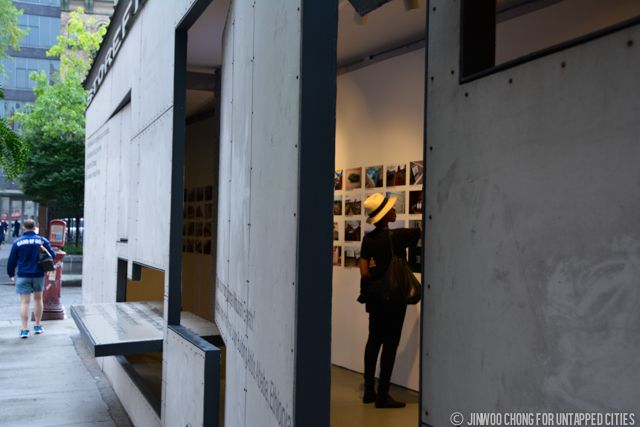
Take the most specific niche of photography you can think of, with what might be New York’s most unconventional gallery space, and you might come up with something a little like ‘Facing East.’ Billed as a look into the influence of ‘Chinese Urbanism in Africa,’ the exhibit premiered last night at Storefront for Art and Architecture, a small, irregularly shaped triangle of space on Kenmare Street near Chinatown.
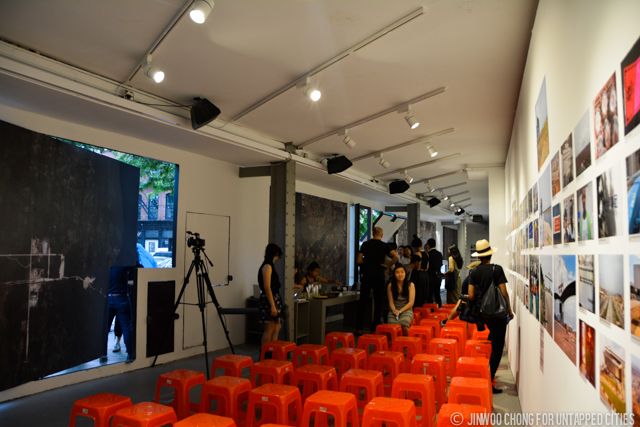
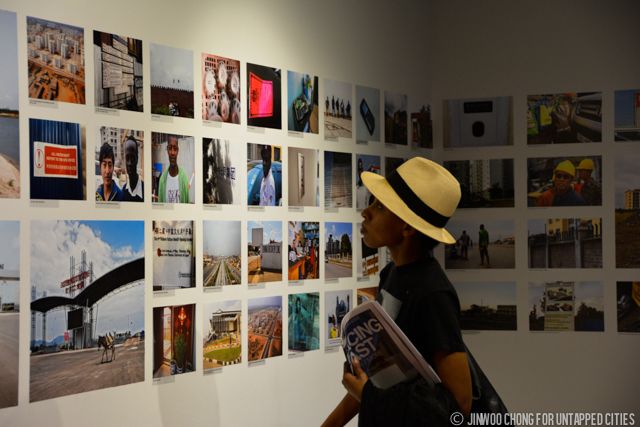
But perhaps just as intriguing as the show is the gallery itself. Founded in 1982, it is capable of housing shows that are far greater than its meager square space because of its unique front wall, which splits into a number of rotating sections able to be repurposed to fit the gallery’s needs. At the current exhibits preview last night, the walls, normally closed flat against the wall, opened to give a glimpse of the exhibit from from the outside, literally transforming the space into a sculpture in itself. Since its founding, Storefront has tackled such urban issues like homelessness, queer culture, and public housing using its unique display.
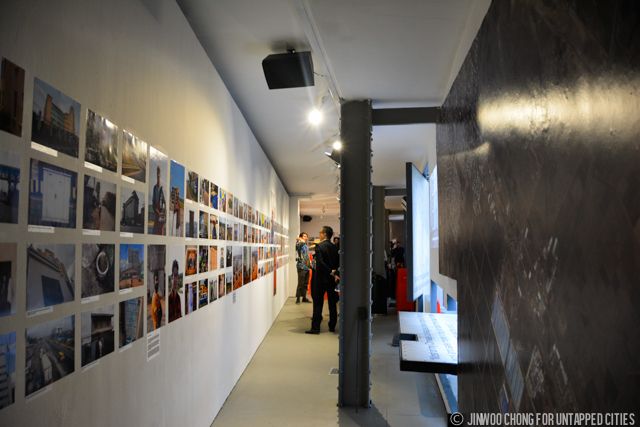
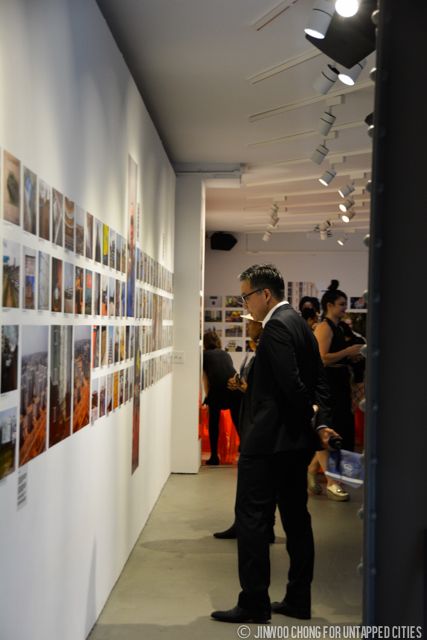
The exhibit was curated by Michiel Hulshof and Daan Hoggeveen, an Amsterdam-based urban researcher and an architect from Shanghai, respectively, who surveyed photographs from six African cities, interviewing Chinese and African professionals, journalists, and artists along the way. They point out that the Chinese presence in Africa is hard to ignore and is only getting more apparent. To this day, Chinese, highways, railroads, housing developments, even full skylines are scattered throughout the African continent, most of their materials sourced from China.
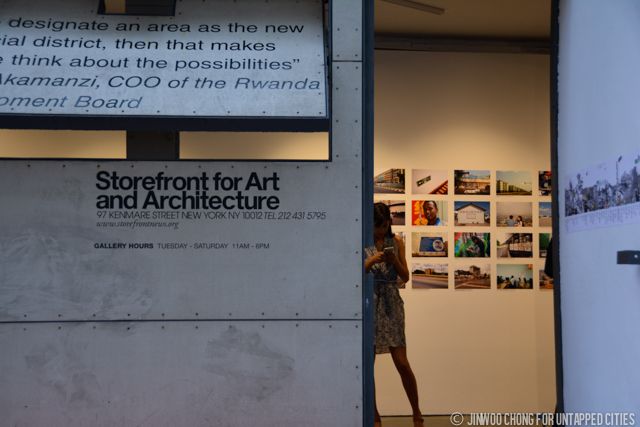
According to the exhibit’s press release, China’s influence does not stop there, referencing China’s state-owned CCTV station broadcasting around Africa, a handful of Confucius Institutes in several African capitals, and an increasing number of African students learning Mandarin Chinese. The hybrid culture that Hulshof and Hoggeveen highlight throughout the show seem to point to the future, “the next chapter of Globalization,” that Africa is aesthetically and culturally ‘facing East,’ so to speak.
‘Facing East’ will be open until August 1.
Next read about the 10 Places to Go in NYC if You’re a Starving Artist. Get in touch with the author @jinwoochong.
Subscribe to our newsletter